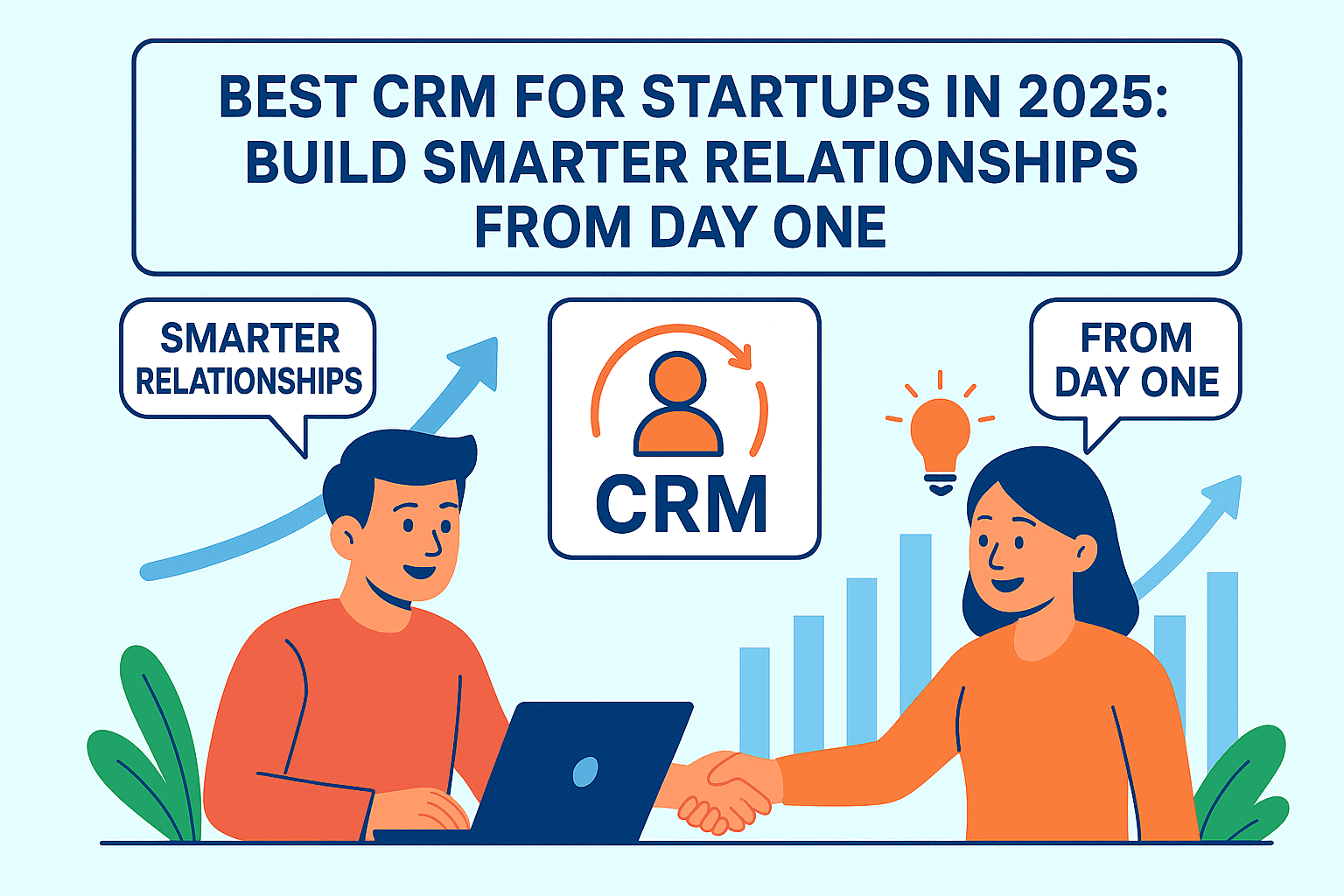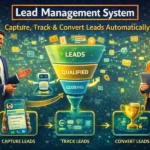AI-Powered CRM Trends 2026: What Indian Companies Need to Know
05 Mar, 2026
India’s sales landscape is changing faster than most businesses realize....
Updated: 18th September, 2025

For startups, the early days are full of hustle, uncertainty, and opportunity. In such a high-pressure environment, building and maintaining customer relationships can either become your biggest growth engine—or your weakest link. That’s where CRM (Customer Relationship Management) software enters the picture.
CRM Software is not only a database, it helps businesses to manage their daily tasks, tracking of sales activities, user performance on a daily, weekly, monthly and yearly basis, and helps in maintaining good communication with customers. In the present highly technological world by adopting CRM software helps startups a structured way to grow fast.
In startups, people often struggle with multiple responsibilities with fewer resources.
Initially, their customers’ data was often scattered on multiple platforms like emails, spreadsheets, sticky notes, and this led loss of opportunities and missed communication.
A CRM centralises all your data in one integrated place, making it easy to find out about each interaction.
This level of organisation empowers startups to:
Additionally, startups benefit from the ability to see performance metrics in real-time, enabling faster and more data-driven decision-making.
The early stage of any business involves rapid experimentation. Whether you’re testing new messaging, refining your product, or exploring different markets, feedback loops matter. A CRM can help you monitor what’s working and what’s not—without relying on guesswork.
How CRM overcome challenges that startup faces:-
Scattered communication: To manage all clients’ interactions, business uses different tools like email, sticky notes, and spreadsheets. But CRM keeps your data in one place.
Inconsistent follow-ups: CRM Software, Send auto reminders to follow up, so that you never miss any opportunity.
No visibility into sales pipeline: CRM provides you a clear view of sales data, sales funnel and performance of the team.
Manual data entry overload: CRM automate repetitive task, saves lot of time.
Poor team coordination: Allows shared access, so your team is always aligned
With these hurdles removed, your team can focus more on customer success and less on admin work.
In the market, there are different CRM Software with different functionality. Need and requirements of Startups are different. Before adopting any CRM Software, you need to search for the functionality that supports your current business flow.
Here’s what matters most:
Business needs software that is easy and understandable, requires less knowledge to operate that rather than a tech expert. A software with a user-friendly interface ensures that your team stay comfortable while using it.
Instead of wasting money on expensive crm software, you need to search. And there are software companies that provide crm software at an affordable price, many provide a trial to understand the flow.
Your business processes might not be the same as everyone else’s. A good CRM should let you customise fields, pipelines, and workflows according to your needs.
Startups are often on the move. A mobile-ready CRM ensures you can track and respond to leads anytime, anywhere.
Automated email replies, follow-up sequences, and task scheduling help save time while maintaining consistency in communication.
Startups use a variety of tools—email platforms, messaging apps, lead forms, and more. The CRM should integrate seamlessly with your existing tools to reduce data silos.
In the market, there are different CRM Software that come with numerous features, and you need to understand that not all CRM Software will suit your business type.
A few categories that typically fit startups well:
Sales-Focused CRMs – This type of CRM Software is built for businesses that especially need to track leads, close deals, and need to manage their sales operations daily.
Marketing-Centric CRMs – Ideal if your startup relies heavily on content or social media to attract customers
Service-Oriented CRMs – Great for startups offering after-sales support or dealing with high customer queries
All-in-One CRMs – Combine sales, support, marketing, and analytics for an end-to-end solution
Your ideal CRM type will depend on your business model and the areas you want to strengthen first.
Start simple: Do not overload your crm requirement with unnecessary features at the beginning, choose the features that you usually use in daily business operations.
Define your process: Before implementing crm, you need to first understand your customer journey so that you can build that software around this
Train your team: Initially, you need to train your team to make the system familiar. Check that your team is comfortable using the software.
Measure and iterate: regularly get updates from the team on whether the crm software is helping in business growth.
While the short-term benefits of a CRM are clear—better organisation, consistent follow-ups, and time savings—the long-term impact is even more valuable. Startups that adopt CRM tools early are more likely to:
Your CRM becomes the single source of truth as your business grows, making it easier to hire, onboard, and expand operations without losing customer insight.
Conclusion
Adapting a Right and innovative CRM Software is a crucial task for startups for strong base. It’s not about expensive things and features; it’s about how it fits your business and future growth. With the right system in place, your startup can build stronger customer relationships, stay organised, and accelerate success from day one.

05 Mar, 2026
India’s sales landscape is changing faster than most businesses realize....
02 Mar, 2026
Here is a number that should concern every sales leader:...

28 Feb, 2026
Your customers are already on WhatsApp. With over 2 billion...

27 Feb, 2026
Every business runs on leads. But generating leads is only...

24 Feb, 2026
Sales is one of the most human-driven professions in business....